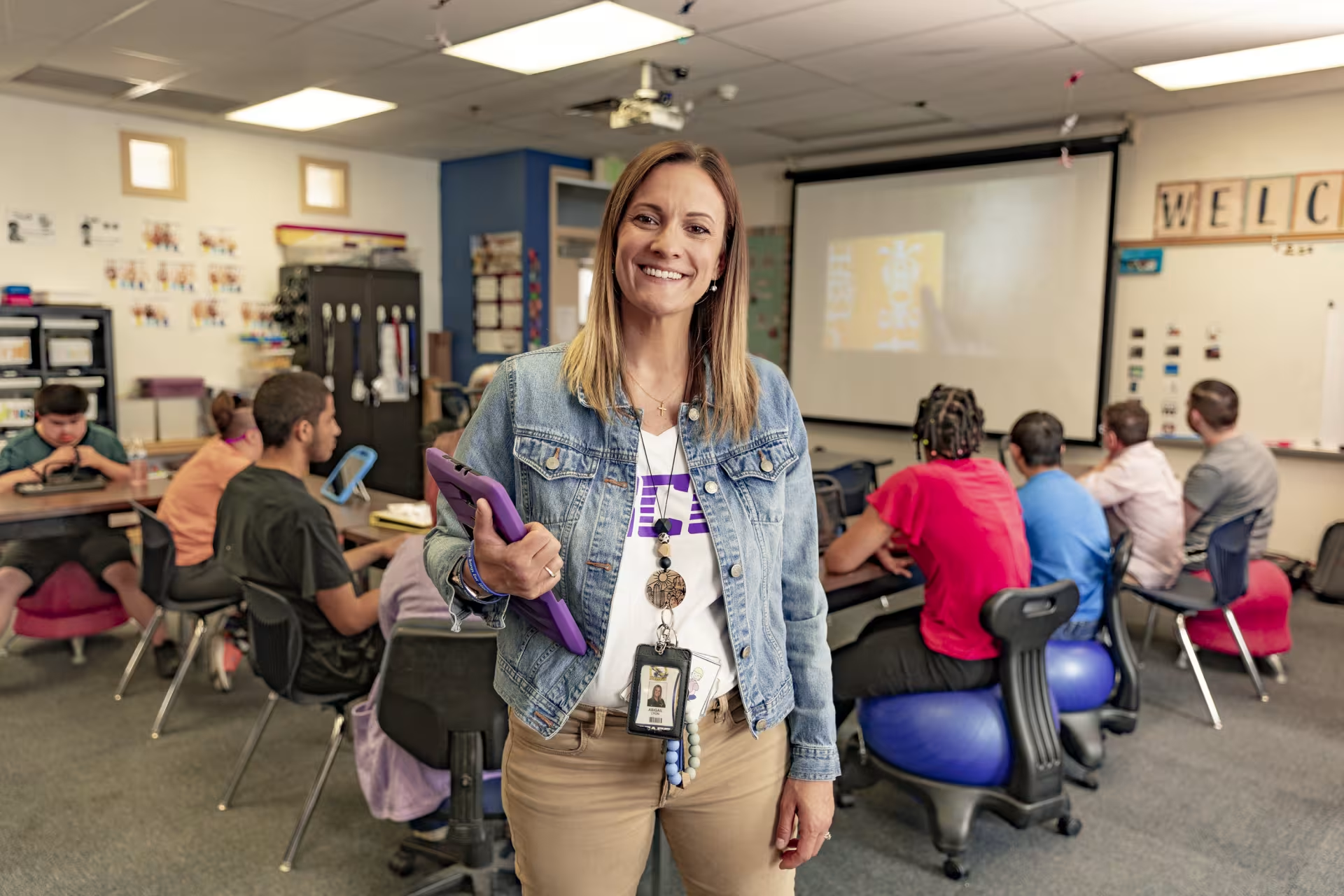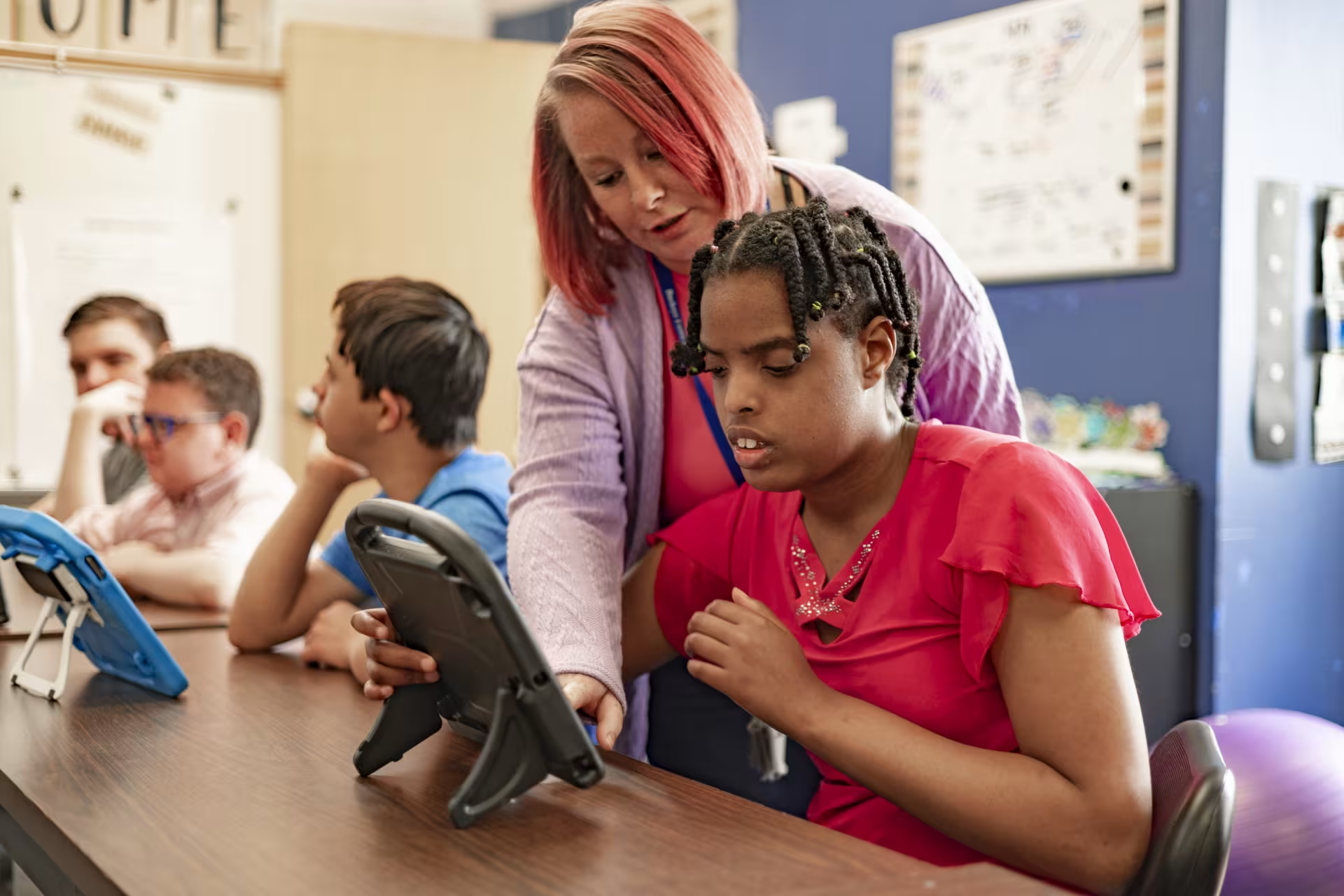


The Master of Education (MEd) in Special Education: Moderate to Severe program is designed for individuals with a bachelor's degree who are interested in teaching K-12 children who have advanced exceptionalities. This master’s degree can prepare you to seek initial teaching licensure in the field of moderate to severe special education. You will study topics ranging from ethical and legal practices to eligibility and assessment in special education. In addition, you must complete a full-time, 15-week student teaching component with a certified special educator.


Grand Canyon University cares about promoting the well-being of students at a large scale, including academic, spiritual and vocational growth. For this reason, academics are supported by our Christian worldview and strong academic heritage. GCU also sees the benefit of achieving a balanced lifestyle. The online master’s degree in moderate to severe special education licensure program creates room for both academic excellence and personal flexibility that can suit your individualized needs.
The online format for the moderate to severe special education master’s degree can offer the convenience of flexible scheduling, allowing you to balance coursework with professional commitments and personal life. With accessible resources and a supportive virtual learning environment, this format can enable you to engage deeply with the curriculum at your own pace.
Embracing modern technology and interactive tools, GCU’s online platform aims to foster an enriching educational experience tailored to accommodate diverse learning needs. However, it's important to note that many teaching programs also include practicum/field experience hours that require in-person and hands-on experiences.
This graduate program includes a rigorous curriculum, relevant courses and faculty to support your journey to begin teaching students with moderate to severe exceptionalities. In this program, you will study special education curriculum with a focus on supporting students with moderate to severe disabilities.
This includes a variety of topics, such as:
The special education degree program concludes with a full-time, 15-week student teaching component that must be completed with a certified special educator. You are expected to have access to K-12 settings with students who have moderate to significant special education needs in order to complete the 103 hours of practicum/field experience requirements. Additionally, upon successful completion of this program, graduates may go on to pursue a moderate to severe teaching credential online.


Upon completion of this MEd program, graduates may be prepared to apply for a moderate to severe special education license to be able to adeptly support students with exceptionalities. Graduates are taught to become skilled in crafting personalized education plans tailored to meet the unique requirements of each individual student.
As a graduate, you may go on to pursue a career as a licensed special education teacher in various grade levels, including:
Kindergarten
Elementary school
Middle school
Secondary school
This moderate to severe special education master’s degree is accredited by the Association for Advancing Quality in Educator Preparation (AAQEP), an accrediting body endorsed by the Council for Higher Education Accreditation.
Additionally, GCU maintains institutional accreditation by the Higher Learning Commission, affirming our commitment to delivering quality education at both national and regional levels. Our MEd programs have received full accreditation from AAQEP, signifying our commitment to fostering effective educators who can evolve professionally and maintain the highest standards of quality in education.
Explore the questions and answers below to help provide clarity on various aspects of the special education track, helping you make well-informed decisions about your academic pursuits.
Should I pursue a non-licensure or licensure MEd in Special Education degree?
What are the different levels of special education?
Can you get an MEd in moderate to severe special education without a bachelor’s degree in education?
Do employers respect online master’s degrees in special education?
What is the difference between mild to moderate and moderate to severe special education?
Are there specialized focus opportunities for advanced special education, like autism spectrum or emotional and behavioral disorders?

Embark on your journey in specialized education with our MEd in Special Education: Moderate to Severe. Enroll now to work toward acquiring teaching skills that can make a lasting impact on diverse learners.
If you are seeking licensure/certification, please refer to the "Accreditation and Compliance/State Disclosures” link for the specific program of interest’s website for your location and/or employment state’s licensure requirements, per 34 CFR 668.14(b)32 and 668.43(c).
Up to 12 credits or 1/3 of the total program requirements in transfer (whichever is less)
Credits: Fill out the Lopes Eval to find out what will transfer
Admission Requirements (Master's)
OR 2.5+ Unweighted GPA and
Admission requirements may differ based on degree level, program and modality, or transfer status. Some programs of study may require a higher GPA and/or other qualifying criteria for admission. Please review full admission and program requirements in the University Policy Handbook.
* Degree must be from an accredited college or program that has been approved by GCU.
** Combined verbal/quantitative, after August 2011 (1,000 combined verbal and quantitative, prior to August 2011).